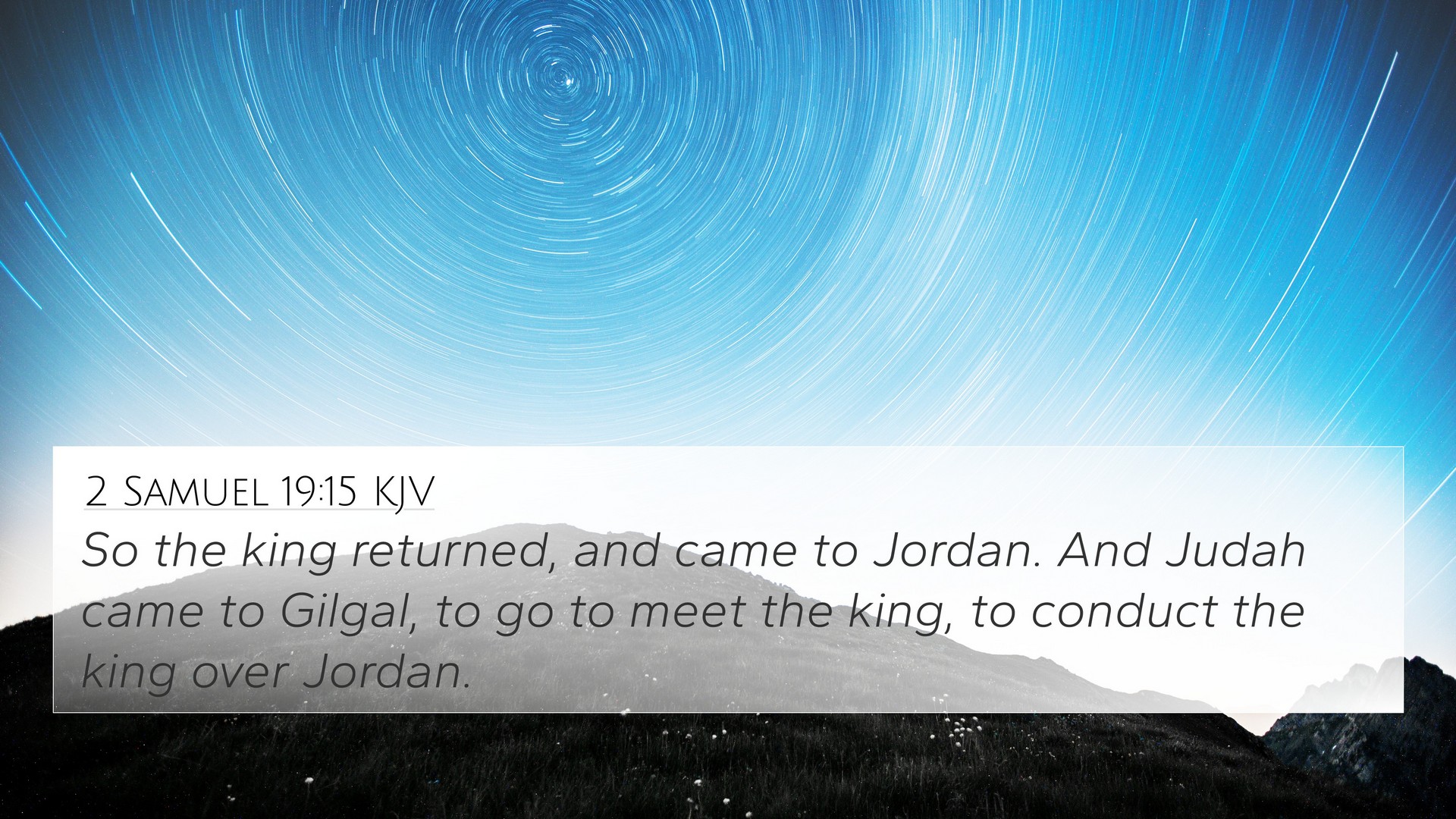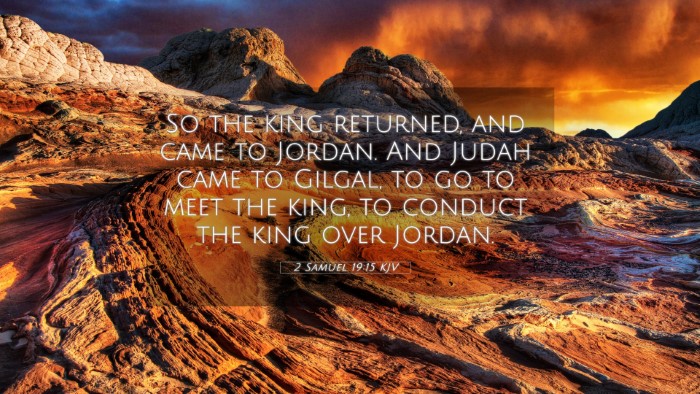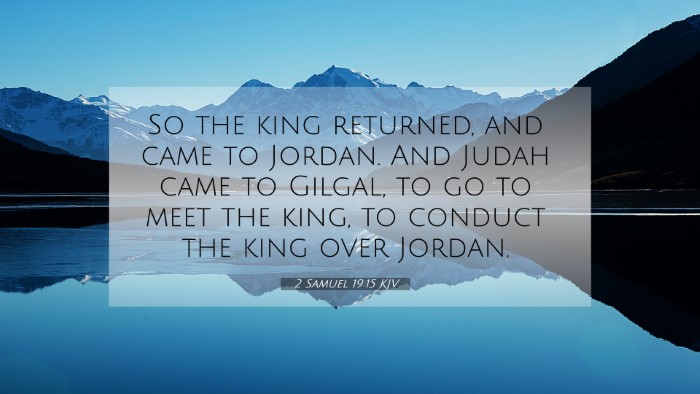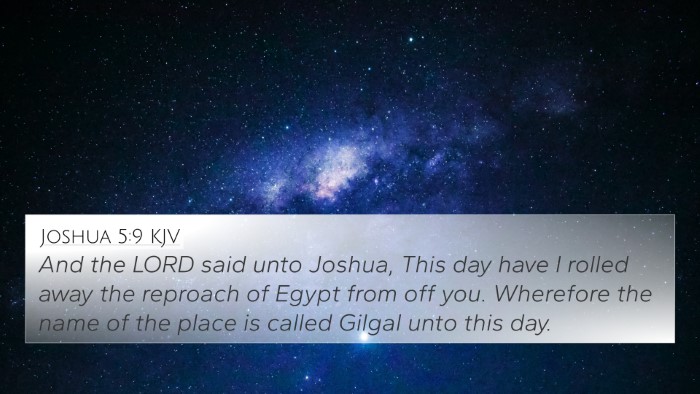Understanding 2 Samuel 19:15
2 Samuel 19:15 states: "So the king returned and came to the Jordan. And Judah came to Gilgal, to go to meet the king, to escort the king over the Jordan."
This verse is situated in a pivotal moment during David's reign, highlighting the return of King David after the rebellion led by Absalom. The insights from public domain commentaries help to unpack the theological and practical implications of this passage.
Verse Analysis and Context
The return of King David is a significant moment in the narrative of 2 Samuel. David’s journey back to Jerusalem symbolizes the restoration of order following chaos and conflict. Matthew Henry notes that Judah’s actions reflect a desire for unity and restoration of the kingdom. Albert Barnes emphasizes the emotional aspect of David’s return, suggesting that it represents reconciliation and acceptance.
Commentary Insights
-
Matthew Henry:
Henry points out that the people of Judah showed loyalty by coming to meet David. The act of escorting the king over the Jordan can be seen as a restoration of his dignity as a leader, reinforcing the themes of loyalty and support within the community.
-
Albert Barnes:
Barnes discusses the significance of Gilgal as a meeting point. This location holds historical importance as the place where the Israelites first camped after crossing the Jordan, symbolizing new beginnings and divine guidance.
-
Adam Clarke:
Clarke highlights the role of the tribes of Judah in this moment, indicating their willingness to take responsibility for the kingdom's stability post-Absalom's rebellion. His analysis reflects on the communal effort required to support a leader and maintain national integrity.
Thematic Connections
This verse connects with themes of leadership, loyalty, and restoration. The act of escorting David symbolizes not just an act of support but a collective commitment to reconcile with their king after strife.
Cross-References
Here are several relevant cross-references that enhance the understanding of this verse:
- 2 Samuel 15:30: David's flight from Jerusalem, showing the initial disarray of his kingdom.
- 2 Samuel 16:14: David's reception of Shimei’s curses, which illustrates his humility in the face of adversity.
- 2 Samuel 18:33: David's grief over Absalom's death highlights his deep emotional connection to his family and kingdom.
- 2 Samuel 19:9: The division among the tribes after Absalom's rebellion, emphasizing political dynamics.
- Psalm 126:1: A reflection on restoration and joy when the Lord returns His people to their land.
- Matthew 21:5: The fulfillment of prophecy concerning the arrival of a king, drawing on themes of rightful leadership.
- Hebrews 7:14: Linking Christ’s lineage to Judah, underscoring the eternal kingship theme.
- 1 Peter 2:9: Reflecting on the royal priesthood concept, as David’s kingship foreshadows Christ's reign.
- Romans 8:19: The longing of creation for the revealing of the sons of God, resonating with themes of hope and restoration.
- Luke 1:32-33: The angel’s message to Mary about Jesus' everlasting kingdom, aligning with David’s desire for a stable reign.
Conclusion
In summary, 2 Samuel 19:15 encapsulates a critical moment of transition for Israel, marked by the return of David and the unity of the tribes that support him. Through combining insights from notable commentaries and cross-references, we can appreciate the layers of meaning in this passage, revealing its relevance in discussions about leadership, loyalty, and restoration.
Further Studies
For those interested in a deeper exploration, analyzing the identified cross-references can provide a broader understanding of the interconnectedness of scripture. This passage serves not only as a historical record but as a thematic beacon that is applicable across various contexts of faith and community.




